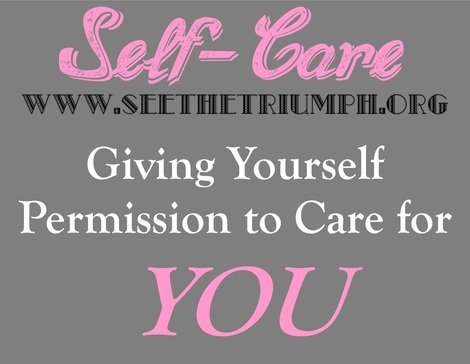|
By Christine Murray, See the Triumph Co-Founder
Why is it so important for survivors of abuse, professionals who work with them, and others who are impacted by intimate partner violence to practice self-care? Even when we know how important it is to practice self-care, why is it often so hard to do so? Throughout this month, we’ll consider these questions during our series on Self-Care. At See the Triumph, we believe that an intentional, ongoing commitment to self-care is critical to maintaining mental, physical, and relationship health when your life is touched by domestic violence, whether personally, professionally, or both. Self-care is important for a number of reasons, including the following:
As with many areas of life, finding balance is critical for effective self-care. Balancing one’s own needs with the needs of others is so important. However, many people struggle to make themselves a priority at all, and they find themselves with the balances tipped toward helping others and ignoring their own needs. Through our research with survivors of past abusive relationships, we’ve heard from several survivors how important it is to simply give oneself permission to practice self-care. Consider, for example, the following quotes from participants in our research:
This month, we aim to remind you that you are worthy of caring for yourself, and making your own health and wellness a priority. Giving yourself permission to believe this is the first step toward making self-care an intentional, ongoing practice in your life. Other topics we’ll address include the role of counseling in self-care, managing boundaries with others, and identifying self-care strategies that work for you. Throughout the month, we hope you will share your own experiences and suggestions for self-care. We look forward to hearing from you! Comments are closed.
|
Archives
July 2024
CategoriesAll About Intimate Partner Violence About Intimate Partner Violence Advocacy Ambassadors Children Churches College Campuses Cultural Issues Domestic Violence Awareness Month Financial Recovery How To Help A Friend Human Rights Human-rights Immigrants International Media Overcoming Past Abuse Overcoming-past-abuse Parenting Prevention Resources For Survivors Safe Relationships Following Abuse Schools Selfcare Self-care Sexual Assault Sexuality Social Justice Social-justice Stigma Supporting Survivors Survivor Quotes Survivor-quotes Survivor Stories Teen Dating Violence Trafficking Transformative-approaches |
Search by typing & pressing enter



 RSS Feed
RSS Feed